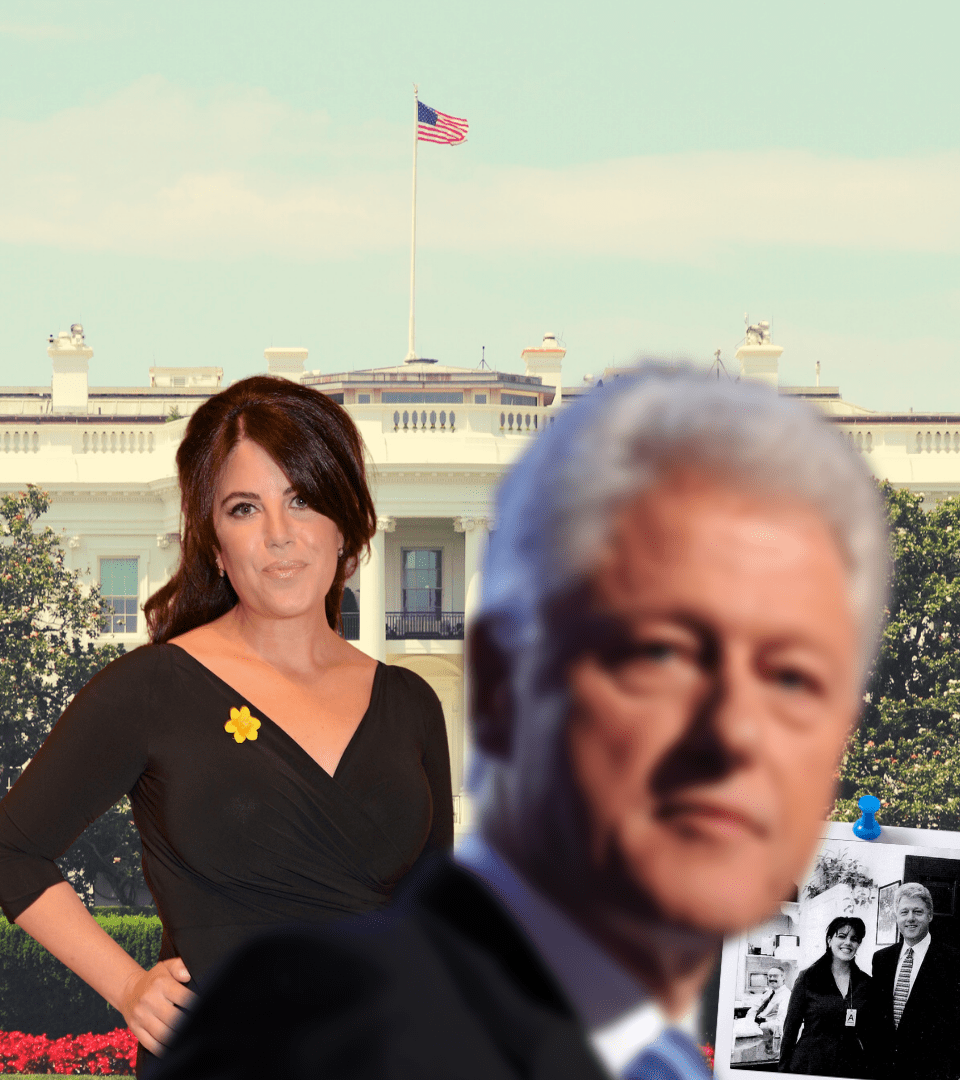On August 30, Warren Buffett, the world’s investment guru, turned 91. And the fact is that this widely respected billionaire has no issues with ageing. In fact he has always made clear to his colleagues that he has no intentions of retiring. He says he enjoys his work so much that he literally jumps out of bed every morning, religiously drinks a cherry coke and rushes to his office to see how his businesses are doing.
And most interestingly, he doesn’t do it to accrue more wealth as he already has plenty. As a matter of fact, he has already donated half of his enormous fortune to charity. This is a practice he says he will continue for the rest of his life.
Finally, if there is one adjective that characterizes Buffett it is how “modest” his lifestyle is in comparison to the planet’s other billionaires. He lives in the same house he bought for US$31,000 six decades ago. And in June of 2021 he further stated that, “my needs are simple” (…) “What made me happy at 40 makes me happy at 90.”
Why it matters. In 2021, Berkshire Hathaway (the holding company which he uses to manage all of his investments) posted operating profits of US$ 6.69 billion, up 21% from the same period last year. These results have made him the sixth richest man in the world, according to the latest Forbes magazine ranking. This year he also joined the Centennials, a club (with a very exclusive membership) whose member’s fortunes exceeds US$ 100 billion.
- While many of the Berkshire Hathaway companies suffered losses in 2020, as the economy recovers they have regained their value and made “significant” profits. In some cases, even surpassing pre-pandemic levels despite supply chain disruptions and rising prices both in the United States and globally.
- And if this were not enough, during this second quarter the conglomerate executed a masterful operation by repurchasing US$ 6 billion of its own shares, even though share prices were at an all-time high. And the strategy, considered outlandish by some, has already borne fruit.
- It is worth noting that unlike the rest of the billionaires on the Forbes list Buffett did not acquire his fortune by creating successful companies, such as Amazon, Tesla or Google. Rather his success has come from studying a company’s behavior for decades, across all areas of its business, before moving in to buy decisively.
- While Buffet has typically maintained a broadly diversified portfolio of dozens of investment assets, he now has a much higher percentage of his wealth concentrated in a handful of stocks than ever before. The latest available earning report from Q1 2021 reveals that 75% of Berkshire Hathaway assets are now concentrated in the shares of five companies: Apple, Bank of America, American Express, Coca Cola and Kraft Heinz.
- De profundis Undoubtedly the first question to arise is this: who is this billionaire who so enthusiastically leaps from his bed to work each morning unhindered by age, while also assuring us that he will not be retiring until death forces him to?
- Warren Buffett was born in Omaha, Nebraska, the only son in a family of three children.
- His father, Howard Homan Buffett, was a stockbroker and a Republican congressman in the U.S. House of Representatives.
- From a young age, Buffett tried his hand at different enterprises. He delivered newspaper to earn a little money. And it is very likely—as his biographers have pointed out— that this early venture awakened his interest in the media, an area where he has since made a number of investments, specifically in the Washington Post.
- In addition, during his time as a student Warren tried his hand at several part-time businesses while attending the prestigious Wharton School of Business in Pennsylvania. But not everything has been a success. He applied to Harvard University, but was not accepted, and shortly thereafter enrolled at Columbia.
- It was at Columbia where he studied economics and benefitted from the teachings of Benjamin Graham, known as the father of value investing, the very methodology he uses to this day for making his acquisition decisions.
- Despite the fact that Buffett was the only student to get A+s in Graham’s classes neither Buffett’s father nor Graham himself wanted the young man to go to Wall Street. Graham even turned down Warren’s offer to work for him for free, though some time later he would rethink his decision and end up calling him.Known colloquially as the Oracle of Omaha, Buffett’s frugal lifestyle has led him to put himself on an annual salary. For example, in 2006 it was approximately US$ 100,000, one of the lowest among senior executives in other companies.
His way of working. An article published in USA Today states that at least 47 books have Buffett’s name included in their title. “No other living person is so often quoted in book titles, with the obvious exception of some U.S. presidents or figures like the Dalai Lama,” explains George Jones, CEO of the Borders Books Company. Several of these books are an attempt to analyze Buffett’s investment strategies, as well as his penchant for certain companies and his long-term vision.
- Among his maxims are to never invest in products that are too complex or that he does not understand. So when the technology bubble burst he was one of the few tycoons who managed to keep his businesses safe from the vicissitudes of the market. Years later, he decided to invest in Apple.
- In addition, throughout his life as an investor he has also sought and found his own path. For example, while Graham—his guru—relied strictly on a company’s balance sheet and revenues, Buffett is also very interested in other more intangible elements, such as the management team or the brand ‘health’ of the companies he invests in or buys.
- In 1956, with US$ 100,000 of his own personal capital and another US$105,000 from seven different partners, he founded Buffett Associates, Ltd. By the end of that year, the company was already managing US$ 300,000. Through 1961, Buffett managed a 251% return as compared to the U.S. Dow Jones benchmark index, which grew by 74.3% over the same period.
Berkshire Hathaway. This is the U.S.-based holding company that wholly or partially owns the shares of several of Buffett’s business groups. It has its roots in the textile mill founded in 1839 by Oliver Chace known as the Valley Falls Company (Rhode Island). In 1965 Buffett acquired part of the textile company and within a few years owned the whole thing. Today it serves as the umbrella organization that unifies all of the holding company’s businesses.
- Nevertheless this mega-millionaire’s performance has not always been smooth sailing. At a very young age, he bet on insurance companies, and his beginnings were not brilliant. He was beaten by an industry that was facing real challenges of competition and high production costs.
- From 1969 to 2003, Berkshire’s business had an average annual return, including dividends, of 22.2% versus 10.4% for the S&P 500.
- Despite his advanced age, Warren continues to maintain a long-term perspective on Berkshire Hathaway. According to him, the percentage of growth that has been achieved in the last 50 years is still too low for what he hopes for in the future.
His investments. As a stock investor, Warren is a born negotiator of just about everything. Berkshire Hathaway is a prime example, as Buffett had no knowledge of textiles at the time he bought it.
- Investing is an art, and there are people who do not start businesses but rather profit from those that are already in place. This is perhaps what has made Warren Buffett the most famous investor in the world. He is also committed to keeping his portfolio diversified, but not in too many stocks and companies.
- In 2008, he made one of his largest acquisitions jointly with Mars, announcing that they would create the largest candy and gum company in the United States, worth US$23 billion. And he did it.
- At the end of that same year, Berkshire Hathaway was one of the companies hardest hit by the subprime crisis given its exposure to banking and insurance companies.
- Nevertheless, in November 2009 Buffett went all in again, and through his holding company completed the largest transaction in its history by buying the Burlington Northern Santa Fe (BNSF) railroad, a company he already had a 22.6% stake in, for US$ 44 billion. An absolutely brilliant investment in the eyes of the market.
The person. In a biography titled The Snowball: Warren Buffett and the Business of Life, he is portrayed as an emotionally fragile man.
- From his childhood upbringing, Buffett, like many children who lived through the aftermath of the Depression of ’29, grew up learning the value of money. This explains why he is so careful with it and so frugal.
- When he was 11 years old, he visited the New York Stock Exchange for the first time and while there made a purchase: three shares of Cities Service Preferred for himself and three for his sister Doris.
- By the time Buffett was 15 he had $2,000 in savings which he used to buy a forty-acre (16 hectare) farm in Nebraska.
- The small farm he had acquired paid for his tuition at the University of Nebraska, where he graduated with a Bachelor of Science degree. He then applied to Harvard Business School, where he was not accepted, so he enrolled at Columbia Business School, where he had classes with legendary stock investor Benjamin Graham. He would later go to work for Graham in New York in 1954.
- Buffett spent his formative teenage years in Washington DC, graduating from the Woodrow Wilson High School. He always had a precocious inclination for business. He delivered newspapers, and sold stamps, Coca-Cola, golf balls and magazines door-to-door. And to round out the picture, he also edited a horse racing tip sheet.
- In 1952 Buffett married Susie Thompson. For a time he invested rather unsuccessfully in a Texaco service station and in real estate, and became a night professor at the University of Omaha. But perhaps most importantly, he took lessons with Dale Carnegie to overcome his tremendous shyness and be able to speak in public.
- Warren suffered greatly after a 1977 divorce from his wife Susan. According to the biography he was so in love with Susan, and the divorce affected him so deeply, that he camped outside her house for weeks.
- Despite this, the two professed great love for one another until Susan’s 2004 death from throat cancer. Buffett spent weeks without leaving her side, and when she died his most fragile side again emerged to the degree that he didn’t have the strength to attend her funeral, where Bono sang.
- And yet Susan had paved the way for Warren following her death. She had asked her friend Astrid Menks to always take care of her ex-husband. In time Menks would become Buffett’s second wife.
- In April 2012, Warren Buffett announced that he had prostate cancer and was undergoing a 22-day treatment.
A model to follow. Buffett is followed for several reasons, but mainly because there are few investors who are as studious and who achieve feats worthy of the record book. In 2014 the price of Berkshire Hathaway shares rose to US$ 200 thousand dollars each—over the long term, of course—but those who had stuck with this adventure with him had paid just US$ 275 for those securities decades ago. What a great bet!
- Over the past 50 years, Berkshire Hathaway has expanded. It has grown from a simple textile manufacturer to an international conglomerate with investments in insurance, food, beverages, technology stocks, banking and private aviation.
- Warren’s investment philosophy is often called “value investing” because it is based on a company’s underlying value rather than the movements of its stock price. Moreover, this guru is convinced that investors should only bet on stocks that they could hold forever.
Guru Tips. Warren’s modest and quiet life made it so that it took Forbes magazine quite some time to notice and include him in its list of the richest Americans, but by 1985 when they finally did notice Buffett was already a billionaire, and one of the richest people in the world.
- He is reluctant to give interviews, but his succinct and incisive letters to shareholders, which are published annually in his shareholder reports, he always gives very good advice that reflects the depth of his knowledge.
- One of his most noteworthy rules is, “it is better to get a great company at a fair price than a “reasonable” company at a cheap price.“
- “Never invest in a business that you can’t understand, such as technologies that are complicated.“
- “If you can’t watch a 50% drawdown on your investment without panicking, don’t invest in the stock market.”
- “The ability to say ‘no’ is a huge advantage for an investor.”
- “Look for companies with high cash-generating capacity and that, once they are up and running, do not require large reinvestments of cash.”
- As inflation took hold of the market post pandemic, Buffett offered the following advice, “The best businesses during inflation are those that you buy once and don’t have to keep making capital investments in afterwards.”
- This guru also prefers to have companies in his portfolio that people feel a connection with. “A brand is a wonderful thing to own during inflation,” says Buffett. For him that includes brands like See’s Candy, which he has owned since 1972.
The philanthropist. Warren has pledged to progressively donate 99% of all his wealth to charity.
- On a more personal note he wrote for his investors, he pledged that he will progressively donate 99% of all his wealth to charity.
- The Susan Thompson Buffett Foundation is a major beneficiary although he also announced that the bulk of his fortune would go to the Bill and Melinda Gates Foundation, created by the Microsoft tycoon in 2000.
The Centennials Club. Despite his advanced age, Warren continues to maintain a long-term perspective on Berkshire Hathaway. By his reckoning, the percentage of growth that has been achieved in the last 50 years is still too low for what he hopes for in the future. But what is clear is that before turning 91 Warren can boast a net worth of US$ 100 billion. And most of that wealth comes from his Berkshire Hathaway shares.
His successor. In 1972, Buffett began a friendship and business partnership with Charles T. Munger (97) that lasts until today. This lawyer and investor joined Berkshire Hathaway as Vice Chairman and is both Buffett’s alter ego and friend. Many believed he would be his successor, but Warren Buffett named Greg Abel as his replacement at the helm of Berkshire Hathaway.
- Also in discussing his successor, he has stated that the company is prepared to continue on a permanent basis after he and Charlie T. Munger retire.
- After long deliberation with Berkshire Hathaway’s Vice Chairman Charlie T. Munger, Buffett finally chose Gregory Abel. Better known as Greg, the future head of the firm is a 58-year-old Canadian businessman, and has been President and CEO of Berkshire Hathaway Energy, and Vice President of Berkshire Hathaway’s non-insurance operations since January 2018.
- According to the Financial Times Buffett stated that, “The Board has agreed that if something were to happen to me tonight, it would be Greg who would take over in the morning.“
Contact details. How can I get in touch with Warren Buffett? Yes. It is possible! Buffett receives about 300 letters a day, and he does select and read some of them. Berkshire Hathaway’s public email address is [email protected], and the mailing address is 3555 Farnam St, Omaha, NE 68131.


